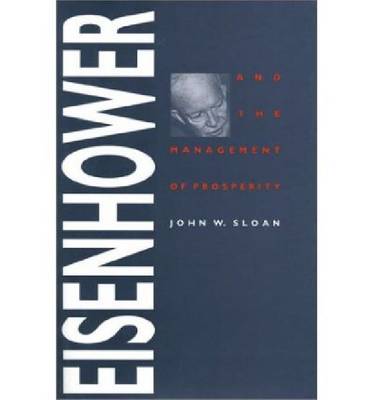Three years out of eight, President Eisenhower achieved a balanced budget. In ""Eisenhower and the Management of Prosperity"" political scientist John Sloan argues that Ike's performance as chief economic policymaker merits higher marks than it has received. Along with the revisionsits, Sloan underscores Eisenhower's commitment to fiscal responsibility and his impressive skills as a leader and politician. But Sloan contends that even the revisionists have underestimated the full range of his accomplishments in shaping America's postwar economy. In contrast to the arguments of the revisionists, Sloan contends that Eisenhower's style of political leadership was more effective in his first term than in his second. During his second term, embittered by the fight for the 1958 budget, the new, more conservative Eisenhower failed to adapt to the rising level of public expectations. He became ""less Machiavellian, more moral, and less effective"". Drawing upon the holdings of the Eisenhower Library in Abilene, Kansas, Sloan delineates the process by which Eisenhower and his advisors created and implemented economic policy. Then he traces the interplay of competing agendas, theories, solutions, personalities, and politics among Eisenhower and his key consultants. Finally he demonstrates that Ike was an active ""player"" in the formulation of economic policy - a President who held and acted upon strong convictions.
- ISBN13 9780700604890
- Publish Date 31 August 1991 (first published 6 June 1991)
- Publish Status Out of Print
- Out of Print 7 February 2023
- Publish Country US
- Imprint University Press of Kansas
- Format Hardcover
- Pages 216
- Language English
